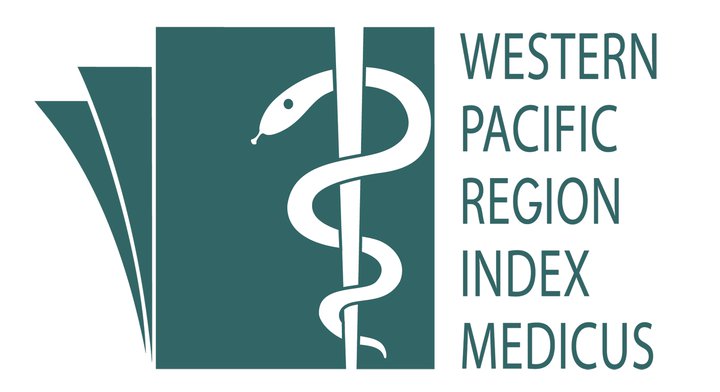What Contributes to The Progression of Chronic Kidney Disease in Type 2 Diabetic Patients?
Keywords:
Chronic kidney disease - disease progression - risk factors - type 2 diabetes mellitus - blood pressureAbstract
Introduction
Chronic kidney disease (CKD) has emerged as a major medical illness that drew the attention of the community. This research focused on the prevalence of five contributing factors to the progression of CKD, namely blood pressure control, glycaemic control, lipid control, smoking and alcohol intake, and explored significant association between these variables. This was a cross-sectional study that examined the progression of CKD based on the worsening of CKD stages.
Methods
This study was conducted among CKD patients with type 2 diabetes mellitus who attended Nephorology Clinic, UKMMC from April to May 2011. The progression of CKD was observed for 3 consecutive visits with 3 months intervals between the visits. Information regarding demographic data and social history were obtained through face-to-face interview, followed by case note review of the blood results. Data collected was analysed using SPSS version 19.0.
Results
A total of 201 respondents were investigated, which included 39.3% (n=79) female and 60.7% (n=122) male. The mean age for the respondents was 66.9 years old (±SD 9.00). Among the respondents, 71.5% had poor glycaemic control; 59.7% had poor blood pressure control; 65.2% had poor lipid control; 19.9% smoked and 3.5% consumed alcohol. There was poor correlation, there were statistically significant association between systolic blood pressure control with the glomerular filtration rate (GFR) (p=0.001; r=-0.229). From this research, high systolic blood pressure was associated with low GFR, which indicated poor kidney function and resulted in progression of CKD.
Conclusions
This study has clearly demonstrated that the control of blood pressure was essential in delaying the progression of CKD.
References
Andrew SL, Kai-UE, Yusuke T, Adeera L, Josef C, Jerome R, Dick DZ, Thomas HH, Norbert L, Garabed E. Definition and classification of chronic kidney disease: A position statement from kidney disease: Improving global outcomes (KDIGO). Kidney International; 2005. 67, 2089–2100.
Persatuan Diabetes Malaysia. 2011. Available at http://www.diabetes.org.my/article.php?aid=921 (Cited 7 July 2011)
Longmore M, Wilkinson I, Turmezei T, Cheung CK. Oxford Handbook Clinical Medicine, 7th edition, Oxford University Press, pg 306.
Kasper R, Christensen PK, Peter H, Lise T, Peter R, Henrik HP. Progression of nephropathy in type 2 diabetic patients. Kidney International; 2004. 66, 1596–1605.
Saleh JA, Yusuf H, Salawu FK. Prevention of diabetic nephropathy. Nigerian Medical Practitioner; 2008. Volume 53, Number 3, 28-32.
Nosadini R, Tonolo G. Relationship between blood glucose control, pathogenesis and progression of diabetic nephropathy. Journal of the American Society of Nephrology; 2004. 15: S1–S5.
Ritz E, Ogata H, Orth SR. Smoking a factor promoting onset and progression of diabetic nephropathy. Diabetes Metabolism; 2000. 26(supplement 4):54Â63.
Ritz E, Stefanski A. Diabetic nephropathy in type II diabetes. American Journal of Kidney Diseases; 1996. 27:167-194.
Thomas V. Perneger, Paul K. Whelton, Ian B. Puddey, Michael J. Klag. Risk of End-stage Renal Disease Associated with Alcohol Consumption. American Journal of Epidemiology; 1999. 150;12: 1275-1281.
Waugh NR, Robertson AM. Protein restriction for diabetic renal disease. Cochrane Database of Systematic Reviews; 1997, Issue 4.
Pohl MA, Blumenthal S, Cordonnier DJ, De Alvaro F, Deferrari G, Eisner G, Esmatjes E et.al. Independent and additive impact of blood pressure control and angiotensin II receptor blockade on renal outcomes in the Irbesartan Diabetic Nephropathy Trial: Clinical implications and limitations. Journal of American Society of Nephrology; 2005. 16: 3027–3037.
Retnakaran R, Cull CA, Thorne KI. Risk factors for renal dysfunction in type 2 diabetes: UK Prospective Diabetes Study 74. Diabetes; 2006. 55: 1832–1839.
Fuller J, Shipley M, Rose G, Jarrett R, Keen H. Mortality from coronary heart disease and stroke in relation to degree of glycemia: The Whitehall study. British Medical Journal; 1983. 287: 867–870.
Warram JH, Scott LJ, Hanna LS, Wantman M, Cohen SE, Laffel LM et.al. Progression of microabuminuria to proteinuria in type 1 diabetes: Nonlinear relationship with hyperglycemia. Diabetes; 2000. 49: 94–100
Fried LF, Orchard TJ, Kasiske BL. Effect of lipid reduction on the progression of renal disease: a meta-analysis. Kidney International; 2001. 59: 260–69.
Telmer, S, Christiansen, JS, Andersen, AR. Smoking habits and prevalence of clinical diabetic microangiopathy in insulin-dependent diabetics. Acta Medica Scandinavica;. 1984. 215: 63–68
Downloads
Additional Files
Published
How to Cite
Issue
Section
License
IJPHR applies the Creative Commons Attribution (CC BY) license to articles and other works we publish. If you submit your paper for publication by IJPHR, you agree to have the CC BY license applied to your work. Under this Open Access license, you as the author agree that anyone can reuse your article in whole or part for any purpose, for free, even for commercial purposes. Anyone may copy, distribute, or reuse the content as long as the author and original source are properly cited. This facilitates freedom in re-use and also ensures that IJPHR content can be mined without barriers for the needs of research.






